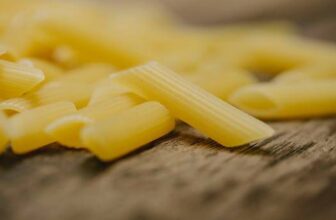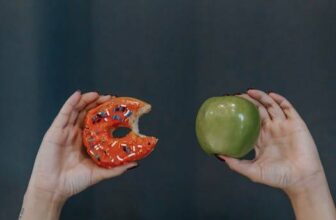Key Takeaway:
- Corn can be a nutritious option for diabetics, with its high fiber content helping to regulate blood sugar levels. However, it is important to monitor portion sizes and choose the right form of corn, such as canned or fresh, to minimize carb intake.
- Blood sugar levels can be effectively managed in diabetics by practicing carb counting and monitoring intake of starchy foods like corn. This can involve working with a registered dietitian to develop a personalized diet and activity plan.
- Corn also comes with additional health benefits for diabetics, including improved digestive health and reduced risk of chronic diseases like cardiovascular disease. These benefits can be optimized by incorporating corn into a balanced, healthy diet.
Can diabetics eat corn?
Corn is a commonly consumed grain, but for diabetics, the question remains: can they eat corn? This section explores the nutritional value of corn for diabetics as well as the different forms of corn that are suitable for consumption by diabetics.
With the rising prevalence of diabetes, it’s important for diabetics to have a clear understanding of the impact of corn on their blood sugar levels.
Nutritional value of corn for diabetics
Corn is a grain consumed by many. Do diabetics benefit from it? Its nutrition value depends on the form and type eaten.
To understand, analyze its nutrients. Look at the table below for 1 cup (kernels) boiled, drained, with salt.
| Nutrient | Amount |
|---|---|
| Calories | 120 |
| Carbohydrates | 27g |
| Fiber | 3.6g |
| Protein | 4.2g |
| Total Fat | 1.5g |
| Cholesterol | 0mg |
The table shows higher carbohydrates than other vegetables. Fiber content is moderate compared to carbs.
Carb-rich foods can cause issues for diabetics. But, if incorporated properly and in moderation into a healthy diet, it can help manage diabetes. Timing is key! Portions must be monitored. With this, consuming corn as part of a sugar management plan is safe.
Different forms of corn for diabetics
Corn is a staple in many households worldwide. But, people with diabetes may worry about eating it. This article looks at various kinds of corn suitable for diabetics.
A table of nutrition facts shows us that whole kernel corn has more fiber and a lower glycemic index than processed corn products. Canned corn, however, has extra salt and sugar. It is high in carbs and may raise blood sugar levels quickly. Cornmeal/flour also has a lot of carbs and little fiber, which can make blood sugar rise rapidly.
Whole kernel corn is the better option for diabetics. Yet, canned corn should be eaten with caution and cornmeal/flour should be limited. Consuming the right amount of whole kernel corn is important, so blood sugar levels remain stable.
Corn has been an important part of cultures for centuries. Before Europeans came to the Americas, Indigenous Americans ate 22 types of maize. They picked three kinds: sweet, floury, and field corns. White maize was special and used for special occasions. Over time, many traditions have been added to maize culture.
Corn and blood sugar levels in diabetics
Corn is a versatile crop commonly consumed worldwide, but is it safe for people with diabetes to eat? In this section, let’s take a closer look at how corn affects blood sugar levels in diabetics and explore the best practices for carb counting as an essential tool for diabetes management.
Carb counting for diabetes management
Corn is a nutritious food that contains carbs. For diabetics, it’s crucial to control carb intake for healthy blood sugar levels. Carb counting’s a great way to do this. It means tracking and limiting carbs in food and drinks. Portion control is important too!
Carb goals are individualized, based on age, weight, activity level, and meds. Choose nutrient-rich carbs like whole grains, fruits, veg and legumes. Refined or processed options are best avoided.
For the perfect plan, diabetics must work with a dietitian or healthcare provider. Monitor blood sugar throughout the day with finger pricks or continuous glucose monitoring.
By properly managing carbs, diabetics can control blood sugars and reduce the risk of diabetes-related complications.
Benefits of corn for diabetics
Corn is a versatile grain that is enjoyed by many, including those with diabetes. In this section, we’ll explore the benefits of corn for diabetics, and how it can be consumed in moderation to maintain healthy blood sugar levels. We’ll also discuss the importance of portion sizes when it comes to corn consumption, so diabetics can make informed decisions about incorporating corn into their diet.
Importance of portion sizes for corn consumption
Corn can be a healthy part of a diabetic’s diet. But, it is important to watch portion sizes carefully. This helps avoid spiking blood sugar levels and potential harm of diabetes management. To keep stable blood sugar levels, diabetics must consume the right amount of corn.
Experts recommend one serving of corn, which is about 3/4 cup or 15-20 grams of carbohydrates. They suggest tracking intake using carb counting methods. Eating smaller portions more often across the day can help prevent blood sugar spikes. This makes it easier for diabetics to manage their diet and health.
The serving size of corn may differ for each individual. HealthifyPro nutrition tracker tool updates its database regularly with sources like USDA food databases. They provide accurate nutrient composition data for various types of corn products.
Corn has been cultivated worldwide for thousands of years. Evidence suggests it was domesticated in Mexico around 9,000 years ago.
To manage diabetes well, tailor your diet and activity plan with personalized recommendations from HealthifyPro nutrition tracker. Portion sizes for corn consumption are critical for diabetics to maintain good health.
Personalized diet and activity plan for diabetics
Personalizing the diet and activity plan is crucial for diabetics to manage their blood sugar levels. In this section, we will explore a nutrition tracker for diabetics, HealthifyPro, which can generate personalized diet plans based on the user’s health data.
HealthifyPro nutrition tracker for diabetics
Diabetics who need help managing their diet can rely on HealthifyPro nutrition tracker. It provides personalized meal plans to meet individual needs and restrictions. Plus, it has over 100,000 food items in its database, including different forms of corn. Each item has nutrition info, like calories, carbs, protein, fat, vitamins, and minerals.
You can use the tracker on your computer or mobile device. It helps you log meals and track progress. So, if you want to take charge of your diet and health, the HealthifyPro nutrition tracker is your perfect tool.
Conclusion: Corn can be included in a healthy diet for diabetics with proper monitoring and portion control.
Corn can be a healthy part of a diabetic’s diet – with caution! It has carbs, fibre, vitamins and minerals like niacin, folate and Vitamin C. But, watch out for extra calories in the form of butter, salt, and other additives. Boiling, grilling or roasting are all healthier options. A medium ear of cooked corn equals fifteen grams of carbohydrates.
| Meal | Carbohydrates (grams) |
|---|---|
| Breakfast | 45-60 |
| Lunch | 45-60 |
| Dinner | 45-60 |
The American Diabetes Association suggests no more than 45-60 grams of carbohydrates per meal. Individuals may vary, so check your blood sugar and other factors before eating corn. With careful monitoring and portion control, corn can be a nutritious addition to a diabetic’s diet.
Five Facts About “Can Diabetics Eat Corn”:
- ✅ Corn is a nutritious vegetable that can be part of a diabetes diet. (Source: diabetescarecommunity.ca)
- ✅ Corn raises blood sugar as it contains carbohydrates. (Source: lorenadrago.com)
- ✅ The glycemic index and load of corn are low, meaning it won’t spike blood glucose levels. (Source: lorenadrago.com)
- ✅ Corn is a good source of essential vitamins and minerals, fiber, and antioxidants. (Source: vinmec.com)
- ✅ People with diabetes can still eat corn but need to monitor portion size and carbohydrate intake. (Source: drsegals.com)
FAQs about Can Diabetics Eat Corn
Can diabetics eat corn?
Yes, diabetics can eat corn as it is a nutritious vegetable certainly a good source of essential vitamins and minerals. However, it is important to monitor the portion size and balance with blood glucose levels, as corn contains carbohydrates that raise blood glucose sugar.
Is corn good for diabetics?
Yes, corn is a good option for diabetics to include in their diet as it is not only delicious and nutritious, but also contains high levels of flavonoids and phenolic compounds that help reduce the risk of chronic diseases, including diabetes.
How does corn affect blood sugar control?
Corn can cause blood sugar to rise as it contains carbohydrates that affect blood glucose levels. However, the glycemic load of corn is low, meaning it won’t spike blood glucose levels. Eating corn can help control blood sugar levels as it is a good source of fiber which slows down sugar absorption in the blood.
Can people with diabetes eat corn on a healthy diet?
Yes, people with diabetes can eat corn as part of a healthy diet. However, it is important to pay attention to portion sizes, carbohydrate intake, and choose whole corn kernels over processed corn products which may contain added sugars and other ingredients that can affect blood sugar levels.
How much corn can diabetics eat?
One ear of corn has about 20-29 grams of carbohydrates, making it a high-carbohydrate food. People with diabetes should monitor portion sizes and adjust their carbohydrate intake accordingly. It is recommended to choose one ear of corn as an appropriate serving size for people with diabetes.
Can boiled corn be included in a diabetes diet?
Yes, boiled corn is a nutritious food that can be part of a diabetes diet. In 100g of boiled corn, there are 17g carbohydrates, 5g fiber, and many other nutrients such as vitamins and minerals. Boiled corn is a good option as it does not contain added sugars or other ingredients that can raise blood glucose levels.







